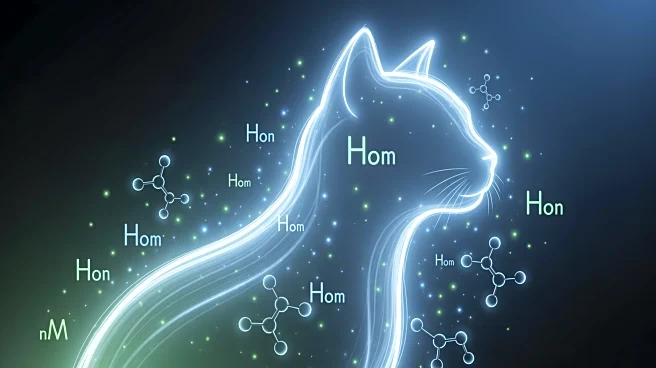Rapid Read • 8 min read
Ford has announced a new line of electric vehicles (EVs) featuring a smaller battery that promises to deliver a similar range to those with larger batteries. The new battery offers 51 kilowatt-hours of power, approximately half the size of the current F-150 Lightning batteries. This innovation aims to produce lighter and potentially less expensive vehicles, addressing consumer concerns over inflation and cost. Despite EVs being a small portion of Ford's sales, the company continues to innovate in this space. Additionally, Ford has unveiled the Mustang GTD 'Liquid Carbon,' a high-performance vehicle with a unique carbon fiber design, further showcasing Ford's commitment to diverse automotive offerings.
AD
Ford's strategic move to develop smaller, efficient batteries could significantly impact the EV market by making electric vehicles more accessible and affordable. This development is crucial as consumers face economic pressures, and the demand for cost-effective transportation solutions grows. The innovation could position Ford as a leader in the EV sector, potentially increasing its market share. Furthermore, the introduction of the Mustang GTD 'Liquid Carbon' highlights Ford's ability to blend performance with innovation, appealing to a broader range of consumers. These advancements may influence competitors to explore similar technologies, driving further innovation in the automotive industry.
Ford's new battery technology and vehicle designs are likely to attract attention from both consumers and industry analysts. The company's ability to deliver on the promise of efficient, affordable EVs will be closely monitored. Market reactions, including potential shifts in stock ratings and consumer interest, will be critical in assessing the success of these innovations. Additionally, Ford's continued exploration of high-performance vehicles like the Mustang GTD 'Liquid Carbon' may lead to further developments in automotive design and technology.
The introduction of smaller, efficient batteries could have long-term implications for the automotive industry, potentially leading to a shift in manufacturing processes and supply chain dynamics. As Ford and other automakers explore similar innovations, there may be increased focus on sustainable materials and energy-efficient technologies. This shift could also influence regulatory policies and environmental standards, as governments and organizations push for greener transportation solutions.
AD
More Stories You Might Enjoy












